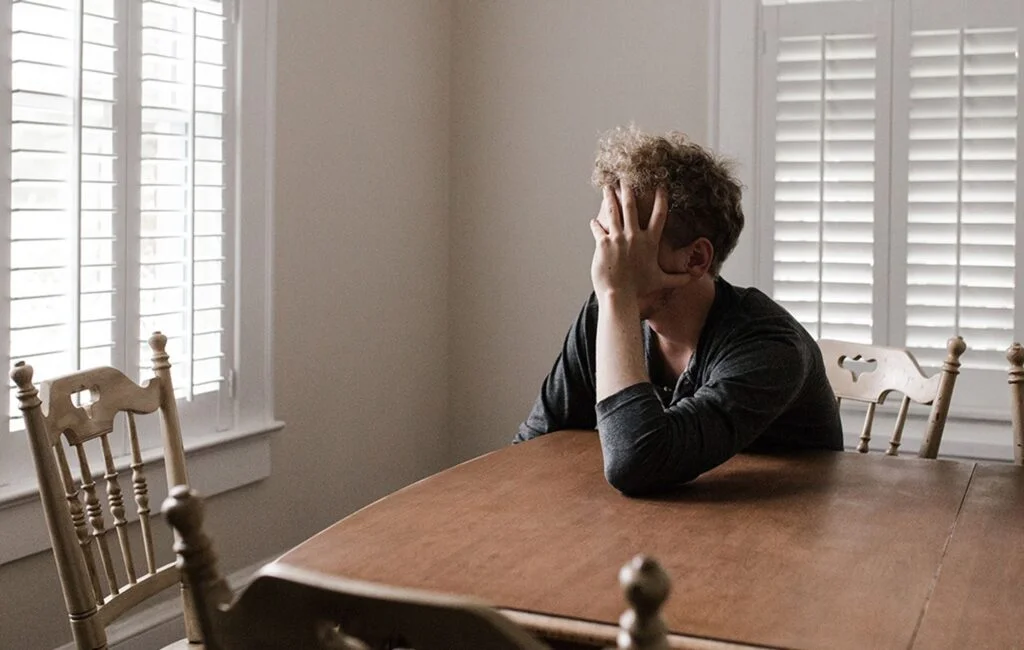
Do you get punched at night for deafening snores? Or wake up feeling tired even though you think you got plenty of sleep? These signs could point towards sleep apnea, a common sleep disorder that affects millions of people worldwide.
Sleep apnea not only disrupts your sleep but also affects your brain function and memory. Untreated sleep apnea may even lead to dementia later in life. Let’s take a look at what connects sleep apnea and memory loss, and what you can do about it.
What Is Sleep Apnea?
Sleep apnea, a sleep disorder, causes breathing to pause while you sleep. There are two types: obstructive sleep apnea (OSA) and central sleep apnea. Some apnea symptoms depend on the kind you have, but others are universal and can include:
- Breathing that starts and stops during sleep
- Decreased libido
- Dry mouth
- Headaches
- Needing to pee often throughout the night
- Feeling tired during the day
- Waking up in the night gasping for breath
Though the symptoms overlap, the causes behind OSA and central sleep apnea differ — here’s how.
Obstructive Sleep Apnea
Obstructive sleep apnea (OSA) is more common. If you have OSA, the muscles in the back of your throat can’t hold your airway open. Your tongue or other tissue pushes back against your throat, closes off your airway, and stops your breathing until you move. People with OSA often experience loud snoring, a telltale sign of this type of apnea.
Central Sleep Apnea
Central sleep apnea, on the other hand, occurs when the brain doesn’t send the right signals to the muscles that control breathing. Your body relies on these cues to perform basic functions, and if your brain’s signals get confused, you will stop breathing temporarily.
Why Does Sleep Apnea Affect The Brain?
Your brain needs oxygen to keep your body systems running smoothly. “Sleep apnea affects the brain,” Dr. Chester Wu, MD and sleep medicine physician, tells Sleepopolis, “because it causes interruptions in breathing during sleep, which leads to a drop in oxygen levels in the blood and an increase in carbon dioxide levels.”
Wu explains these changes can lead to a range of harmful effects on the brain, including:
- brain cell damage
- inflammation
- oxidative stress: damage to tissue from free radicals
Sleep apnea can also lead to disruptions in sleep stages, says Wu, including loss of rapid-eye movement (REM) sleep. This can have a negative impact on attention, memory, and learning.
Sleep Apnea and Memory Loss
Studies have shown that sleep apnea can cause memory loss and cognitive decline. How? Wu explains waking up throughout the night, sleep structure changes, and oxygen deprivation can all lead to impairments in memory consolidation and retrieval.
Wu says a region of the brain called the hippocampus is particularly vulnerable to the effects of sleep apnea. This area of the brain is critical for memory formation, which could explain why long-term interruptions in your sleep can affect your memory.
The hippocampus, a part of the brain responsible for memory formation, is particularly vulnerable to the effects of sleep apnea.
Sleep Apnea, Dementia, and Alzheimer’s
Most people experience forgetfulness as they age. Dementia, however, describes pronounced memory loss and other cognitive difficulties that affect your daily life. Alzheimer’s disease is a type of dementia that is a complex brain disease caused by cell damage.
People may worry about brain damage from sleep apnea, and unfortunately there’s some merit to those concerns: Amyloid plaques, which are associated with Alzheimer’s disease, have also been found in people with sleep apnea. Research has connected sleep apnea in mid-life with an increased occurrence of Alzheimer’s later in life. While no one knows the cause of Alzheimer’s, this brain disease and sleep apnea seem to be linked. Alzheimer’s has no cure, but Wu says you may prevent memory deterioration with consistent sleep apnea treatment.
Is Memory Loss From Sleep Apnea Reversible?
You can reverse memory loss from sleep apnea to an extent. One landmark study showed that treating sleep apnea with continuous positive airway pressure (CPAP) therapy can improve memory and attention span in patients with mild cognitive impairment.
“The extent to which sleep apnea-induced memory loss is reversible depends on a variety of factors,” says Wu. These factors include:
- Age and overall health of the individual
- Effectiveness of treatment
- Severity and duration of the sleep apnea
Wu says some studies suggest CPAP therapy can lead to improvements in memory function, although how much you progress can vary person to person.
How To Treat Sleep Apnea
The most common treatment for sleep apnea is continuous positive airway pressure — or CPAP — therapy. To use CPAP, you wear a mask or nasal device while you sleep. This gadget pushes air into your nose and mouth to keep your airway open all night. CPAP devices often see low compliance rates due to discomfort that can be corrected, so professionals urge sleep apnea sufferers to stick with it — with support from your doctor and the right sleeping positions and equipment, you should be able to sleep comfortably with sleep apnea.
Other treatment options include oral appliances, surgery, and lifestyle changes such as losing weight and avoiding alcohol and sedatives before bed.
If you think you may need treatment for sleep apnea, let your healthcare provider know. They can set you up with the right diagnostic tests to decide if you have sleep apnea, what type you have, and how best to treat it.
The Last Word from Sleepopolis
Sleep apnea is a disruptive sleep disorder that can affect your brain function and memory. But, with the right treatment, you can improve your sleep and reduce the risk of developing memory problems. If the above sleep apnea symptoms sound all too familiar to you, you can talk to your provider about getting tested and starting treatment. Sleep apnea doesn’t haven’t to steal your sleep anymore.

























